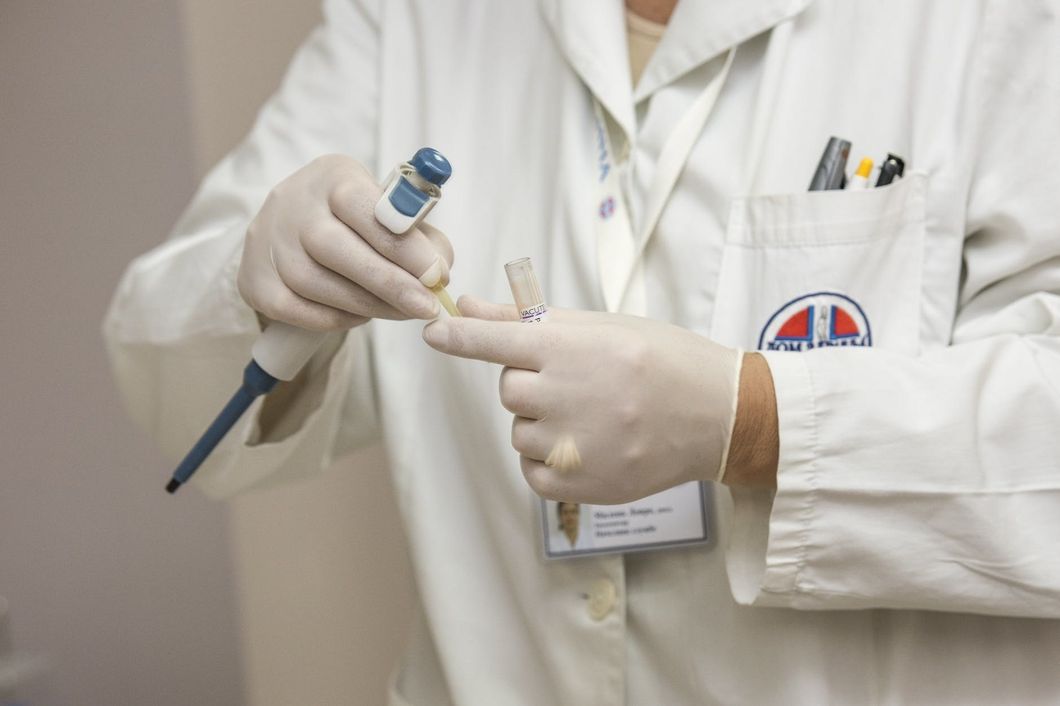11 Organizations You Can Support To Help Worldwide Vaccinations Become Possible
With news coming out about the reemergence of supposedly eradicated diseases, it's up to us to make vaccinations available to as many people as possible.
It was appalling to hear that just last week, the presence of a close relative to the bubonic plague appeared in China. Considering how aware our currently reigning generations are about wellness and disease prevention, we are at a point where spreading the news about worldwide vaccinations is as important as ever, and in relatively impoverished countries, access to such medical attention is a necessity. Even the smallest of protection is all it takes to keep from being exposed to the oldest of diseases, and with the ability to raise our voices on the topic, here's who you can support to make sure the world has quick access to vaccinations.
Center for Disease Control and Prevention
The Center for Disease Control and Prevention (CDC) is famous throughout the country for its cutting-edge grip on the medical world. To support this organization is a bold statement of solidarity against the possibility of a disease's reemergence, so reading about IIS on their website is the best way to keep yourself informed about the world of vaccinations. The most natural way to lobby for a cause is to first know everything present in the problem at hand, and CDC's site is the gateway to endless up-to-date information.
Immunization Action Coalition
Immunization Action Coalition (IAC) specifically focuses on vaccinations and all the resources one may need to answer personal questions about vaccines. Expert advice is present all over the website, and it is extremely simple to sign up for their newsletter. Pledging support for IAC causes you to stand out as an educated individual, and spreading the word about what you have learned is the most efficient way to popularize the idea of providing worldwide access to vaccinations.
American Immunization Registry Association
The American Immunization Registry Association (AIRA), though based in America, works to provide vaccine access to virtually all communities nationally. America still contains impoverished regions with limited access to proper medical care, so endorsing this organization and its pro-IIS policies is just a stepping stone toward supporting all communities in the world.
World Health Organization
The World Health Organization (WHO) is another well-known organization credited for its impact in medicine throughout the globe. In terms of vaccinations, their website has a clearly defined page dedicated to the Global Vaccine Action Plan, a series of steps to provide larger access to vaccinations worldwide. The mission is to focus on granting access to vaccines in poorer regions, so supporting WHO's plan is a perfect way to strengthen the fight against vaccine-preventable diseases.
International Vaccine Institute
Based in Seoul, the International Vaccine Institute (IVI) is an organization under the United Nations dedicated to boosting vaccine access in nations around the world. In fact, it has 36 nations/organizations who have signed its treaty for developing vaccines, a startling number that brings hope against the face of disease.
GAVI Alliance
GAVI, formally Gavi, focuses exclusively on vaccinations. Just from visiting the homepage, you are swept by a wave of information, from improvements in vaccination efforts to the next diseases the alliance is targeting. Their story is amazing to read, and they describe in detail how the decline in vaccination efforts at the end of the 20th century led to the formation of the organization. To prevent a similar decline in vaccination support from taking place again, paying attention to GAVI's work is a great way to endorse their efforts.
Doctors Without Borders
Médecins Sans Frontières, also known as Doctors Without Borders, works with poorer regions to give better medical attention to those who need it. Their page about vaccinations shows exactly why efforts for improving vaccine circulations have not grown as much as people would like, ranging from issues about price to others about physical location. Their mission is transparent, making it easy to support them as they fight for better third-world access to vaccines.
American Academy of Pediatrics
The American Academy of Pediatrics (AAP) finds itself in a strong position as the leader of the Immunization Alliance, a group of 25 different organizations all focused on providing greater access to vaccinations. Just the thought of such a large alliance is nearly unfathomable, and with every voice counting, standing by this team's side is a sign of support for bettering the entire world's health.
GiveWell
GiveWell itself is an organization used for determining the best areas for donating a certain resource. For vaccinations, they have specifically identified measles, rubella, polio, and meningitis A as main diseases to eradicate. GiveWell has already researched initiatives taking place (or said to be taking place) to combat these diseases, and reading up on what they have reported is a great way to maintain reliable vaccine-related updates.
UNICEF
UNICEF is dedicated to providing resources to children in negatively impacted countries and communities that are otherwise considered staple amenities elsewhere. From shelter to medicine, the organization's mission is united in providing the kids everywhere with access to a reliable support system. Their immunization program is just one of the ways in which they provide for these areas, and according to their immunization page, they have helped lower the prices of vaccinations to new "all-time lows."
European Centre for Disease Prevention and Control
Even on the European Centre for Disease Prevention and Control's (ECDC) website is a large headline detailing how measles continues to thrive in Europe because of reduced vaccinations. Access to in-depth data and assessments is as intimate with the dilemma as one can be, so to refute heavily supported fears is merely denying what is right in front of us. ECDC's ability to donate such valuable information to us is a great way for us to be more proactive about which regions require more vaccinations and about how else we can continue making an impact.





























